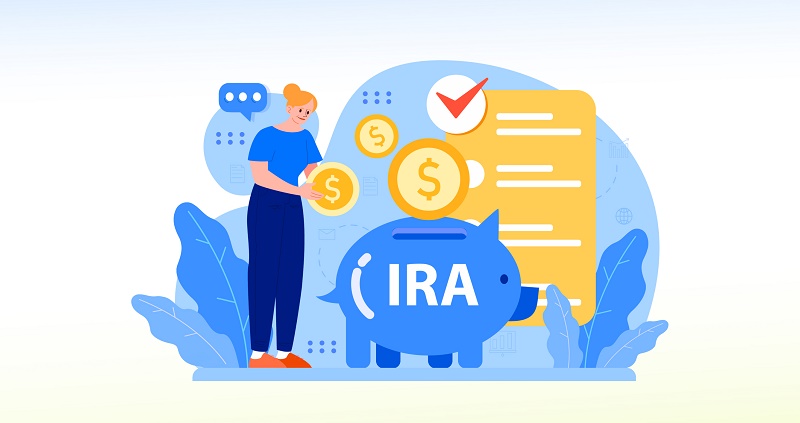Alaska taxes for retirees: What you need to know before moving
Explore how Alaska’s tax advantages can benefit retirees, and learn about other financial factors to consider.
Home > Retirement > Retirement Taxes in Alaska
No state retirement income tax: Alaska does not tax retirement income, which includes pensions, 401(k)s, IRAs, and Social Security benefits.
No state sales tax: While Alaska does not impose state sales tax, some cities and boroughs may charge local sales taxes up to 7.85%.
More than just tax benefits: While retirees may benefit from tax perks, it is also important to consider the pros and cons of living in Alaska before moving.
Why consider Alaska for retirement?
For many, retirement is a chapter of newfound freedom, a time to enjoy the rewards of years of hard work. After what may feel like a lifetime of saving, you might not want to stress about money during your golden years. Where you choose to retire can greatly affect your financial situation. Alaska, also known as the Last Frontier, presents a unique blend of financial perks that may be appealing to retirees.
However, while financial advantages may make Alaska retirement-friendly, a high overall cost of living may outweigh tax savings. Due to its remote location, healthcare, utilities, and groceries may be more costly compared to other states, so it’s important to consider if the tax benefits outweigh the high cost of living.
Does Alaska tax retirement income?
One of the most significant perks is the lack of state income tax. Alaska does not impose income taxes, meaning everyone, not just retirees, is exempt from paying income taxes. Therefore, any retirement income from savings, retirement accounts (e.g., a 401(k) or an IRA), pensions, or other investments is not taxed on the state level. This can add up over your retirement years, saving you up to thousands of dollars in taxes per year compared to other states that do tax income. However, it may also be important to note that federal taxes may still apply.
Does Alaska tax Social Security?
Since Social Security is also a form of retirement income, you can rest assured that you will not be paying state income taxes on your distributions. Again, it is important to note that you may still be subject to federal income tax. Delaying your payments can also help you further maximize your Social Security benefits.
Other taxes to be aware of
Besides tax-free income, the Last Frontier also has other taxes you should keep in mind if thinking of moving here. While some rates may be lower than nationwide averages, others may be on the higher end.
Other taxes to consider include:
Sales taxes in Alaska
Alaska also does not impose sales taxes on a state level. However, while state-wide sales taxes do not apply, individual cities and boroughs can still impose their own local sales tax rates, which may exceed 7% in some communities,1 but some cities, like Anchorage, do not have local sales taxes. Therefore, if you plan on moving to Alaska during retirement, you might want to check local tax rates, so this won’t come as a surprise to you.
Property taxes in Alaska
Property taxes are one of the few significant rates to consider in Alaska. Effective property tax rates vary by borough, but are often around 0.90% on average, with higher rates in some areas.2
While a small number of communities do not levy property taxes, most populated boroughs do. Many local governments also offer senior property tax exemptions, though eligibility and benefit amounts vary by borough.
Estate and inheritance taxes in Alaska
Alaska does not impose state estate or inheritance taxes, so your hard-earned assets can be passed down without worrying about state-level tax burdens. This could also be a good time to ensure your estate plan and beneficiaries are up-to-date. It is also important to note that inheritance taxes may vary by state, so if your heir lives in another state, they might want to look into local tax laws.
Is Alaska retirement-friendly?
Although Alaska’s tax system may attract and retain residents, the state has much more to offer. The Last Frontier is quite retirement-friendly, especially for those seeking stunning natural landscapes. The state offers a serene landscape — a change from hectic cities and crowded beaches. However, like with most big moves, you might still want to consider the pros and cons Alaska has to offer.
Here are some advantages and disadvantages of retiring in Alaska:
Pros of retiring in Alaska
- Natural beauty and outdoor lifestyle: Alaska offers stunning landscapes, fishing, hiking, wildlife, and other unique adventures year-round — perfect for those who love the outdoors.
Low population density: For those seeking a peaceful and quiet retirement, the state offers a less crowded lifestyle with rural towns.
Permanent Fund Dividend (PFD): Eligible residents may receive an annual Permanent Fund Dividend, which distributes a portion of the state’s oil revenue. While the PFD is not taxed by Alaska, it is generally taxable income for federal tax purposes.
- Unique community culture: Many retirees enjoy the strong sense of community and independence promoted by Alaskan culture. Tight-knit communities can also help prevent loneliness or isolation.
Cons of retiring in Alaska
- Cost of living: Despite having lower taxes, the cost of living in Alaska can be higher than other parts of the country. Goods and services, particularly groceries and utilities, are often more expensive due to Alaska’s remote location and heating costs during winter may also be higher than other states.
Proximity to family and other loved ones: Travel costs for visiting family and other loved ones can get quite high, and should be carefully considered.
Harsh winters and limited daylight: Long, cold winters with limited daylight can lead to seasonal affective disorder (SAD) or cabin fever for some people.
- Limited healthcare access: Rural areas may lack adequate medical facilities and specialists, requiring travel for more advanced care.
Is retiring in Alaska the right choice for you?
Alaska offers a unique blend of financial incentives and a serene lifestyle for retirement. If you are considering moving during your golden years, you may want to carefully weigh the pros and cons of retiring in Alaska to determine whether the state fits your retirement goals.
You may also want to consider if your financial situation will allow you to make such a move and still have a comfortable retirement. Talking to a professional, like a retirement financial advisor, can help you better determine how to navigate this situation without depleting your retirement funds.
Bottom line
Retiring in Alaska offers unique opportunities and niche challenges. Being one of the top 10 states to retire for tax purposes, many retirees may find it appealing to spend their golden years in the Last Frontier. However, it is important to do your own research and potentially even visit the state before making a big move.
If you are looking to supplement your retirement funds or take your savings to the next level, Raisin is here to help. The Raisin marketplace gives you access to a variety of high-yield savings products with competitive interest rates — all in one place. Sign up and start maximizing your savings potential today!
The above article is intended to provide generalized financial information designed to educate a broad segment of the public; it does not give personalized tax, investment, legal, or other business and professional advice. Before taking any action, you should always seek the assistance of a professional who knows your particular situation for advice on taxes, your investments, the law, or any other business and professional matters that affect you and/or your business.


